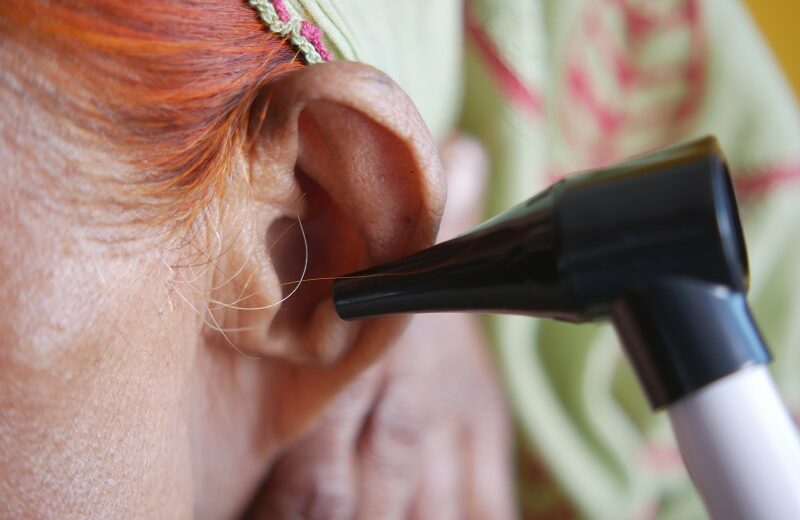Sudden sensorineural hearing loss (SSHL) is a condition characterized by a rapid decline in hearing, which may show up abruptly or evolve progressively over several days. The degree of hearing loss can vary significantly among individuals, and the condition may be either temporary or permanent. While some individuals may informally refer to this phenomenon as an “ear stroke,” the terminology used by medical professionals is “sudden sensorineural hearing loss” or SSHL.
This article provides a thorough overview of SSHL, detailing its symptoms and underlying causes. It offers guidance on when individuals should seek medical attention and outlines the processes involved in diagnosis and treatment.
Symptoms of Sudden Sensorineural Hearing Loss (SSHL)
The National Institute on Deafness and Other Communication Disorders (NIDCD) defines sudden sensorineural hearing loss (SSHL) as a rapid and unexplained hearing loss that can occur suddenly or diminish over several days. Individuals may notice this loss upon waking or when using the affected ear, sometimes preceded by a noticeable “pop” sound. SSHL usually affects only one ear and may come with additional symptoms, including:
• Ringing in the ear (tinnitus)
• Fullness in the ear
• Dizziness and balance issues
Sudden Sensorineural Hearing Loss (SSHL) is a condition that arises from disruptions in the sensory organs of the inner ear. Several medical conditions can lead to or further exacerbate SSHL, for instance:
• Disorders affecting the inner ear, such as Meniere’s disease
• Ear infections
• Autoimmune diseases
• Circulatory problems
• Traumatic head injuries
• Neurological disorders
• Certain medications, including cancer treatments and drugs used for severe infections.
When to Seek Out Medical Support
According to the NIDCD (National Institute on Deafness and Other Communication Disorders), approximately 90% of cases of SSHL (sudden sensorineural hearing loss) are classified as idiopathic, indicating that they occur without a known cause. Recognized as a medical emergency, SSHL necessitates prompt intervention. Without timely treatment, SSHL can result in irreversible hearing loss. Consequently, it is imperative for individuals experiencing symptoms of SSHL to seek immediate care at an emergency department or urgent care facility.
Treatment Options for SSHL
The National Institute on Deafness and Other Communication Disorders indicates that corticosteroids are the standard treatment for sudden sensorineural hearing loss (SSHL), particularly when the cause is unknown. These medications help reduce inflammation and swelling, potentially aiding in hearing restoration. Doctors may prescribe corticosteroids or administer them via injection into the middle ear to enhance their effectiveness in reaching the inner ear. The NIDCD emphasizes the importance of starting treatment promptly, as delaying intervention for more than 2 to 4 weeks may result in permanent hearing loss.
Hearing issues can significantly impact an individual’s communication abilities, particularly in cases of sudden hearing loss, which does not provide time for adjustment. People experiencing hearing difficulties should strive to stay engaged in communication despite initial challenges. It is essential to seek out prompt medical evaluation, as delaying treatment can increase the risk of permanent hearing impairment. Many patients recover their hearing with appropriate intervention, while others may require hearing aids for effective communication. Timely action can significantly influence the outcome.





